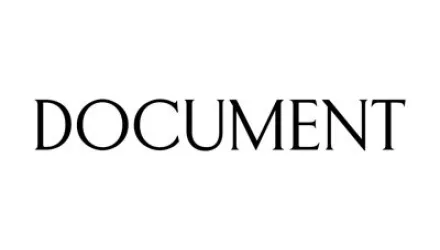In 1926, Carter Woodson and his fraternity brothers launched Negro History Week on a small college campus in Kentucky to celebrate the countless African Americans who worked to advance human civilization. By 1976, increased public awareness and nationwide civil rights protests exposed the deep roots and reach of social injustice. It helped transform a week-long celebration into a month devoted to reflection and reform.
This Black History Month, it is impossible to ignore how economic disparities that have tormented Black and Brown Americans for centuries have also invited digital inequities into the most impoverished communities. Broadband funding is not enough. It is time for transformational broadband policies that support economic resilience in every household.
At a time when the labor of Black and Brown Americans was still being used to build wealth from which they were systematically excluded, Dr. Martin Luther King, Jr. was at the center of a movement to welcome all Americans into the U.S. economy. He vigorously advocated for economic reform and was unafraid to name its role in perpetuating injustice. Decades later, digital poverty has become just as problematic as economic inequality. Both make just outcomes even more distant, and grievous economic consequences inevitable, for already disenfranchised populations.
MLK’s push for economic reform is at the root of a question that we have yet to answer: does every American have a right to participate in a digital economy? In a poignant tribute to MLK and his push for economic justice, the Rockefeller Foundation’s Otis Rolley wrote:
Suggesting that Blacks and [W]hites should be treated equally was radical enough for Dr. King to face death threats. But when he turned his focus to essential workers … some saw that as a bridge too far. When he focused his fight on economic injustice, he was murdered.
Shifting from demanding redress for what was righteous for Black and Brown Americans to demanding comprehensive public policy interventions to correct structural economic discrimination, MLK became an existential threat to the America that too many at the time knew and loved. Today we face a similarly complex dilemma now that economic mobility is tied to digital citizenship, particularly for Black and Brown Americans who have historically been locked out of wealth-building opportunities.
MLK’s assassination revealed a fundamental truth proven over and over again since July 4, 1776. Economic dominance coupled with political control would help ensure white superiority for generations to come. This theory is well-documented in the 1968 Kerner Commission Report and propagated in public policy and community investment strategies from coast to coast.
On the economic front, more than 50 years after MLK’s death, White households still have approximately eight times the wealth of Blacks and five times that of Hispanics. Whites tend to benefit from higher annual salaries and more expansive investment opportunities in stark contrast to their Black and Brown counterparts who are more likely to work at multiple jobs while facing varied economic disadvantages. More than 70% of White Americans experience homeownership, one of the most significant wealth-building tools, which is a far cry from the 44% of Black Americans and 48% of Hispanic Americans who are more likely to be denied home loans with equivalent credentials.
Income inequality has long been recognized for its immediate and generational impact. In the age of technology, digital inequalities have become an added accelerant for economic injustice, especially when applying for a salaried job, starting a business, or opening a retirement savings account requires digital literacy and reliable Internet access.
Unsurprisingly, digital poverty is most prevalent in low-income households. For those earning $75,000 or more per year, nine in ten adults have high-speed Internet access and more than one computing device at home. In households that fall below $30,000 per year, fewer than six in ten adults enjoy the same comforts. Those households – largely Black and Hispanic – disproportionately rely on their smartphones to get online and oftentimes lack a computing device at home.
Long before the global pandemic, digital inequities crept into low-income households in urban and rural households alike. In 1995, the National Telecommunications & Information Administration published its revelations on the digital divide and followed up with a 1998 report that centered race and income as significant factors. Citing the emerging digital economy as a driving force of domestic economic well-being, the agency warned that the “computer-rich [were] getting richer,” a trend that is embedded in the digital economy.
The fact that high-income households are the most likely to be connected as opposed to those with low incomes was as true almost 25 years ago as it is now. Gaps in access to technology interfere with economic opportunity and wealth accumulation among Black and Brown populations in significant ways. Namely, barriers to education, health care, and civic participation are complicated and intensified by digital poverty.
Since the Internet was introduced into American households, federal policies have primarily focused on the access side of the problem. For example, over $42 billion of the $65 billion in Infrastructure Act funds allotted for broadband will be restricted to network investments. Under-resourced state and local governments are largely on their own to develop holistic broadband programs that operationalize digital equity.
Digital inequities pave the way for deeper societal divides. They are most recognizable in student homework gaps, lopsided workforce development outcomes, and telehealth disparities. Less obvious is the widespread and collective cost to millions of residents who are unprepared to capitalize on opportunities in a knowledge-based economy. While disconnected residents can still find work in a goods and services model, they do so at remarkably lower wages and higher risk.
There is no need to litigate whether light-touch regulation was the right federal approach when the Internet was still a nascent technology. However, we must immerse ourselves in dethroning the belief that high-speed Internet is a luxury, a lingering viewpoint that has resulted in the poorest and most disadvantaged populations – including White Americans – being denied economic opportunities.
With billions of dollars in the pipeline for broadband, it is imperative for both appointed and elected federal, state, and local officials to revisit MLK’s calls for economic justice and the dreams deferred by those most impacted by the digital divide. Forward-looking public policy strategies that promote widespread digital citizenship also support America’s long-overdue promise for a multi-racial democracy where all Americans have equal economic opportunities.
Ochillo, Francella . “Will Dreams for Equality Be Deferred by Gaps in Technology?.” February 28, 2022



